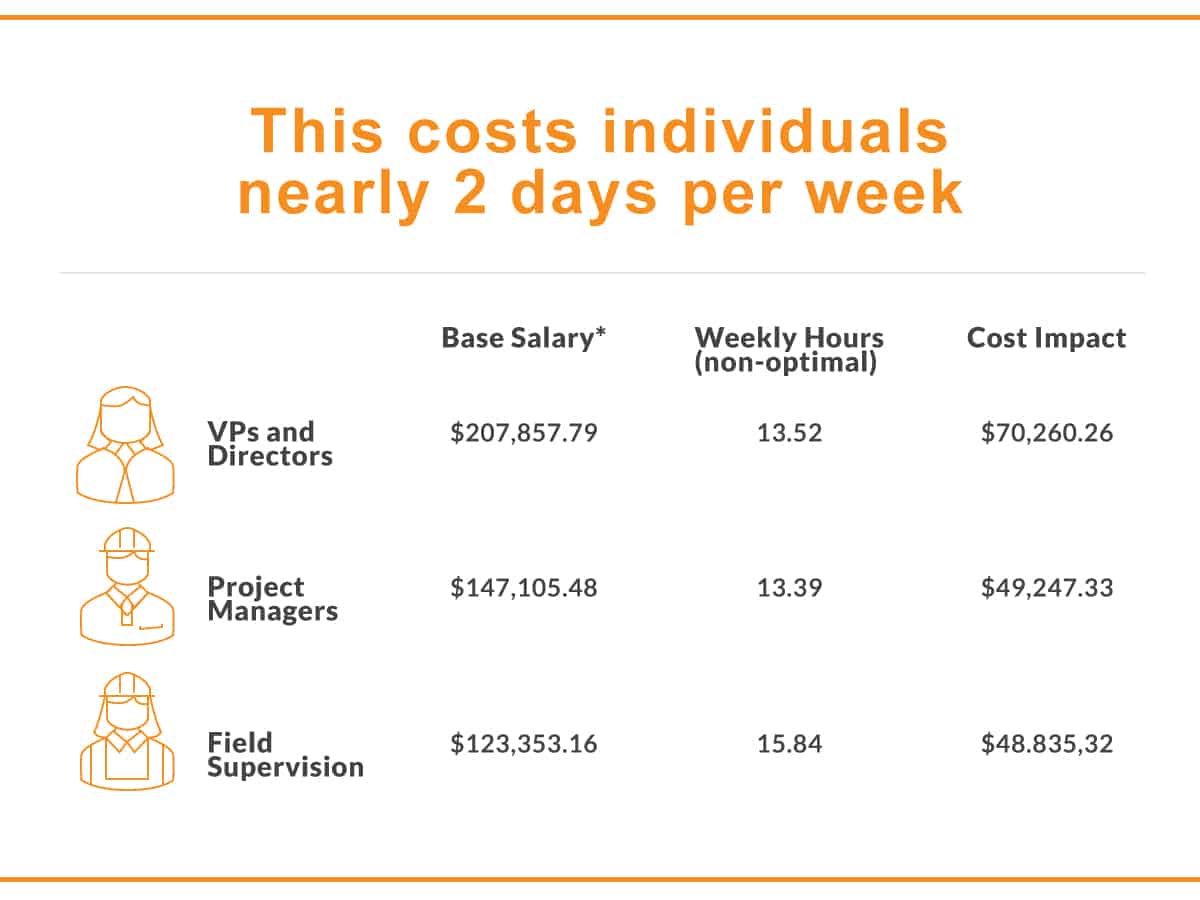Collaboration inefficiencies cost the construction industry $177 Billion a year – here’s how PDF can help

Earlier this year, a survey study run by Plangrid in collaboration with FMI Corp., found that major construction companies, just in the US, are wasting as much as $177 billion in staff, mainly because of communication and process inefficiencies.
600 construction leaders (Directors, Project Managers, and Supervisors) from the US, Australia, New Zealand, United Kingdom and Canada detailed how they spend their time while in construction projects and manage communication and collaboration internally and externally. The results are astonishing.
The average Project Manager wastes an average of 14 hours per week on unnecessary administrative activities that could be minimized or outright eliminated with the right technology: retrieval of data and information, conflict resolution, collaboration, and reporting. That’s 35% of your knowledge worker’s time, down the drain every week due to inefficiencies.
Most of the time is spent either hunting down project data (reviewed/approved plans, seeking approvals, budget cut sheets, and other relevant information – up to 5 hours a week) and inputting data collected manually into project management tools (up to 8 hours a week). Engineers and project managers should be in the field, fixing issues and coordinating resources, not walking back and forth from the site to the office every time they are required to build a report or retrieve key project documents.
Wasting time is expensive
Making the most of digital tools
Although 75% of respondents say they are provided with smartphones and tablets, few say they take full advantage of the mobile tools available to improve efficiency and communication on the work site. Only 20% of respondents mentioned they use these devices consistently as a way to collaborate and access data. The main reason? The tools they use in their mobile devices can be clunky to use and adoption is extremely low.
Construction management has always been and still is a paper-and-pen-first industry. That means that Project managers collect hundreds of unorganized notes on-site every day and then need to head over to the office to organize, itemize, and share those items, leading to:
- Poor Communication
- Increased Admin Burden
- Project delays and misunderstandings between parties involved
By digitalizing and democratizing construction management data, you enable all parties to collaborate and communicate in real time on-site. Reports get generated automatically at the end of the day from every issue opened during the day, and tasks are assigned to the right stakeholders right when they are discovered. Also, your team will not spend any time searching for documents, as all versions of the documents they need will be available on their device at all times.
Digital documents are in the center of the disruption process in the construction industry for a variety of reasons:
- Paper-like experience for plans, budgets, blueprints, etc
- Enhanced collaboration in real time on those documents
- Automatic report generation from tickets/issues database, daily logs, and meeting reports
- Form data collection and digital signing functionality
- 24/7 off-site and on-site document searchability
- Automated document approval workflows and version control
- Increased document security options over paper
- Light-weight, green alternative to paper
Foxit SDK already works with many of the largest construction, engineering, and energy companies in the world, helping them streamline their collaboration, communication, and reporting systems, in the field and the office. To learn more about how Foxit technology is disrupting the industry, get in touch today.
